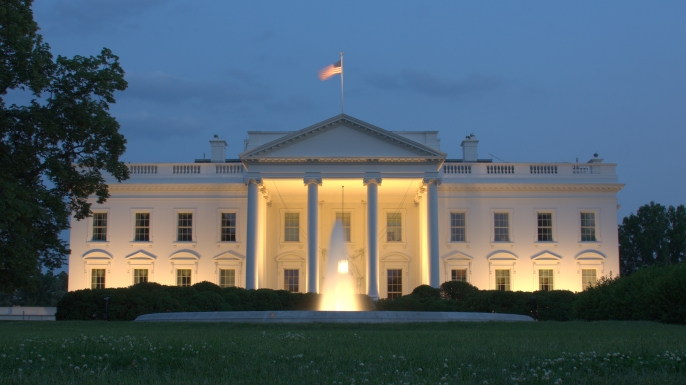BOSTON, June 12, 2020―Today, the Trump Administration announced that it would remove sexual orientation and gender identity nondiscrimination language from seven federal regulations governing access to health care, health insurance, and services for nursing home eligible elders. The final rule would remove sexual orientation and gender identity nondiscrimination provisions from the Affordable Care Act’s nondiscrimination regulation (implementing Section 1557), as well as rules governing other major programs governed by the US Department of Health and Human Services including Medicaid enrollment and services, state and federal health insurance exchanges, insurance coverage, Qualified Health Plans, and the Program of All-Inclusive Care for the Elderly (PACE).
“In the middle of a global pandemic, with tens of millions of Americans newly out of work and no longer insured by their employer-based health plans, it is unconscionable that the Trump Administration would take steps to make it even harder for lesbian, gay, bisexual, and transgender people to access health care, health insurance, and elder-care services,” said Fenway Health CEO Ellen LaPointe. “Moreover, given the well documented evidence that communities of color are more vulnerable to COVID-19 infections, complications, and fatalities, this move will do even more harm to Black, Latinx, and indigenous LGBTQIA+ people.”
Anti-LGBTQIA+ discrimination in health care is widespread, correlates with poorer health and well-being for LGBTQIA+ people, and makes LGBTQIA+ people less likely to access health care. This exacerbates health disparities that LGBTQIA+ people experience. Since 2011, the Joint Commission, a nonprofit organization that accredits hospitals and other health care organizations, has required sexual orientation and gender identity nondiscrimination policies in health care institutions as a criterion for accreditation.
The American Medical Association, American Psychological Association, National Association of Social Workers, and other health professional associations have endorsed the necessity of sexual orientation and gender identity nondiscrimination policies. For more than 15 years, the Equal Employment Opportunity Commission and numerous federal courts have issued rulings finding that federal prohibitions on sex discrimination prohibit discrimination based on sexual orientation and gender identity.
“The removal of sexual orientation and gender identity nondiscrimination policies goes against the broad consensus of support for these policies in the health care system, mainstream jurisprudence, and public opinion, as over 70 percent of Americans support sexual orientation and gender identity nondiscrimination laws,” added Sean Cahill, Director of Health Policy Research at The Fenway Institute at Fenway Health. “Today’s news is just the latest demonstration of the Trump Administration’s contempt for our Constitution’s guarantee of equal justice under law.”
The additional removal of sexual orientation and gender identity nondiscrimination provisions from HHS programs will harm LGBTQIA+ people who have disproportionately benefitted from them. In 2014, Medicaid covered a significant portion (39%) of LGBTQIA+ adults with incomes of 139% of the federal poverty level or less. As a result, the rate of uninsurance among low- and middle-income LGBTQIA+ adults was much lower (18%) in states that had expanded their Medicaid programs under the ACA than in those states that did not expand their Medicaid programs (34%).
Additionally, the PACE program serves vulnerable, nursing home eligible elders who are trying to stay in their homes as long as possible. LGBTQIA+ elders experience disproportionately higher rates of social isolation, which correlates with depression, treatment nonadherence, and substance use, than their straight, cisgender peers. The PACE program is a vital service for these elders.
“Many LGBTQIA+ elders experienced overt and at times violent acts of discrimination at the hands of police, other government officials, and employers during their youth,” Cahill added. “As elders many have experienced discrimination in accessing health, aging, and disability services. Making them even more vulnerable to discrimination by revoking policies that prohibit it just seems cruel.”
This latest move by the Trump Administration targeting LGBTQIA+ people is one of numerous anti-LGBTQIA+ policies enacted by the Trump administration over the past three years that are harming the health and access to care of LGBTQIA+ people. These policies include:
- Promoting religious refusal policies that allow discrimination in health care and social services based on religious and moral beliefs;
- Dismissing Peace Corps volunteers and Air Force service members who tested positive for HIV, and refusing to provide pre-exposure prophylaxis for HIV prevention (PrEP) to at-risk Peace Corps volunteers;
- Placing transgender inmates of the Federal Bureau of Prisons, especially transgender women, at much higher risk of rape by incarcerating them according to their biological sex at birth instead of their gender identity;
- Prohibiting transgender people from serving in the U.S. military;
- Removing sexual orientation and gender identity questions from federal surveys of older adults, people with disabilities, and victims of crime;
- Filing a brief with the U.S. Supreme Court arguing that gender identity is outside of the scope of Title VII of the Civil Rights Act of 1964, which prohibits discrimination based on “race, color, religion, sex and national origin;”
- Filing a brief in the Masterpiece Cake Shop case before the U.S. Supreme Court supporting discrimination against a gay male couple and stating that there is no compelling federal government interest in prohibiting anti-gay discrimination;
- Attempting to repeal or weaken the ACA, which has cut the uninsured rate in half for LGBT people since it was enacted in 2010.


